News
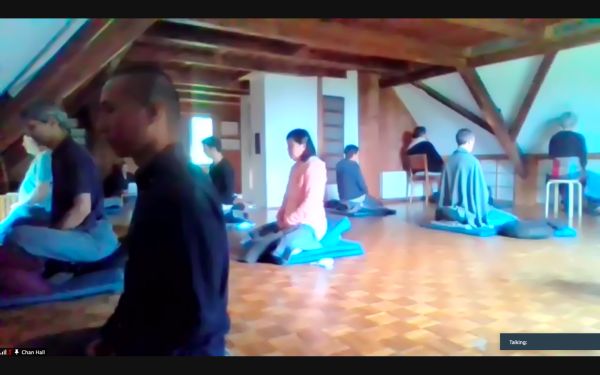
August 02, 2021
Ven. Chang Wu Guided Online Seven-day Chan Retreat in Switzerland
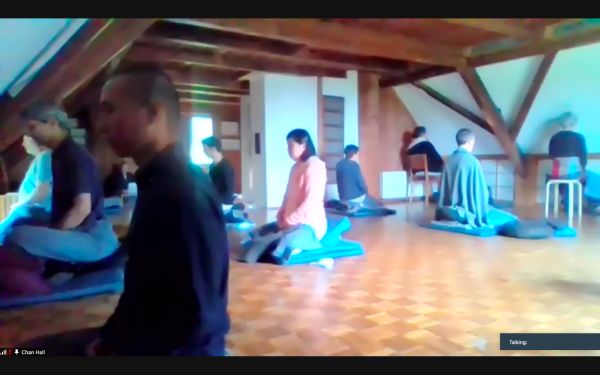 Venerable Chang Wu, Vice Managing Director of Dharma Drum Mountain branches in North America and Director of Dharma Drum Mountain Vancouver Center, was invited to lead a seven-day Chan retreat again at Chan Bern, starting from July 10. The retreat was conducted both online and in person. The twenty-four participants came from eight countries in four different time zones, including Switzerland, Germany, Liechtenstein, Austria, Finland, Belgium, the UK, and Canada. Although some online participants only attended partially due to time differences and their busy schedule, they nonetheless demonstrated their eagerness and devotion to practice.
Venerable Chang Wu, Vice Managing Director of Dharma Drum Mountain branches in North America and Director of Dharma Drum Mountain Vancouver Center, was invited to lead a seven-day Chan retreat again at Chan Bern, starting from July 10. The retreat was conducted both online and in person. The twenty-four participants came from eight countries in four different time zones, including Switzerland, Germany, Liechtenstein, Austria, Finland, Belgium, the UK, and Canada. Although some online participants only attended partially due to time differences and their busy schedule, they nonetheless demonstrated their eagerness and devotion to practice.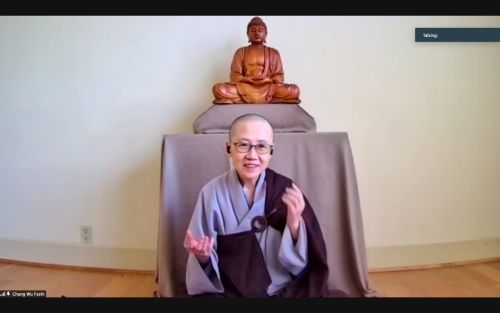
On July 9, the Venerable first gave a Dharma talk on “Chan Practice in Daily Life for Monastics.” She started off by explaining the similarities and differences between Mindfulness-based Stress Reduction (MBSR) and Chan Buddhist practice. She then went on to demystify the Buddhist monastic life, conveying the spirit of “Practice is daily life; daily life is practice” whereby monastics aim to liberate themselves from suffering as well as benefit other sentient beings. There were over 70 attendees in total, and the talk was well received.
The intensive retreat kicked off the next day. All the attendees had years of experience in meditation. During the retreat, some were trying very hard with their practice yet couldn’t relax properly. One individual e had long been suffering from trauma and didn’t really know how to deal with it. Another had just been certified by a Japanese Zen master for his breakthrough experience, and hoped to persistently use the method. Still another was looking to hear the Chan teaching of “emptiness” after having underwent a 2000-kilometer pilgrimage journey in Spain, where he originally suffered from enormous fear but suddenly experienced serenity and clarity in mind. The Venerable expressed that it was indeed quite a challenge to give general guidance to practitioners of different levels while helping them diligently engage in meditation for a retreat conducted both online and in person. She said it was also an opportunity for her to learn as well.
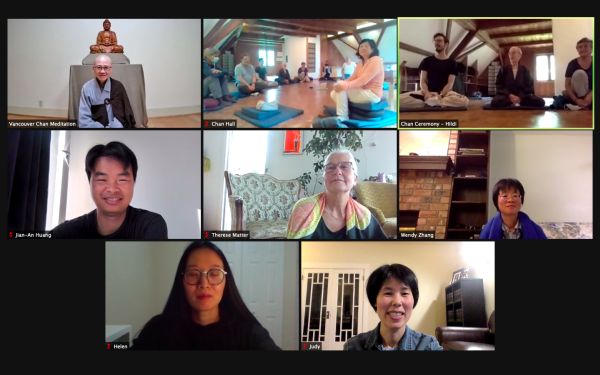
During the first Dharma talk, the Venerable encouraged attendees to enjoy every day, every meditation session, and every breath during the retreat, using a beginner’s mindset. On the second day, she guided everyone to experience Chan in motion. She explained that relaxation is not only about relaxation of the body, but also about continually examining our inner self, to let go of self-judgement, self-talk, and the mind of comparison, so that the mind can truly relax. She later introduced the correct way of breathing and how to take up shikantaza (“focusing only on sitting in meditation”) practice in Silent Illumination, which requires one to be clearly aware of the arising, shifting, and vanishing of our bodily sensations, wandering thoughts, and external phenomena without responding to, engaging in, and interfering with them.
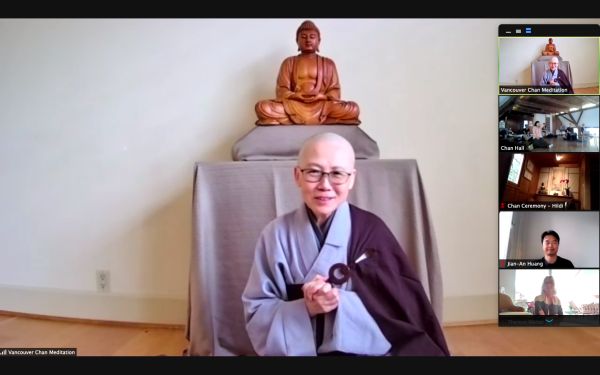 The Venerable also quoted verses from the Faith in Mind by Sengcan, the third patriarch of Chan School. “The Supreme Way is not difficult if only you do not pick and choose” points to the mind of attachment and resistance as the obstacle to our practice. The line “Neither love nor hate, and you will clearly understand” means that by being free from preferences, we’ll realize that there is actually nothing to attach to or resist.
The Venerable also quoted verses from the Faith in Mind by Sengcan, the third patriarch of Chan School. “The Supreme Way is not difficult if only you do not pick and choose” points to the mind of attachment and resistance as the obstacle to our practice. The line “Neither love nor hate, and you will clearly understand” means that by being free from preferences, we’ll realize that there is actually nothing to attach to or resist.After practicing the method of direct contemplation, Ven. Chang Wu further explained Silent Illumination by quoting a verse in Hongzhi Zhengjue’ Zuochan Zhen (Admonition on Sitting Meditation): “Knowing things without coming into contact with things; and illuminating phenomena without being confronted by conditions” illustrates that phenomena are illusory because they are in a constant state of flux, as is the mind, which is capable of knowing and illuminating. Thus, there is no need to become attached to sensations and experiences, since they are none other than the working of conditioned arising. More than mere words and language to be intellectually grasped, these are doctrinal teachings that can be personally experienced and realized through Chan practice.
On the morning of the concluding day, the refuge-taking ceremony and the ritual to pay grateful tribute to the patriarchs were also conducted. One online participant, who was a Catholic with long years of practice in yoga and Zen, had never wanted to become a Buddhist. During the refuge-taking ceremony, however, he was touched and decided to take refuge in the Three Jewels. At that moment, he felt so peaceful, settled, and delighted. Everyone also felt happy for him and his story certainly strengthened others’ faith to keep practicing the Dharma.
